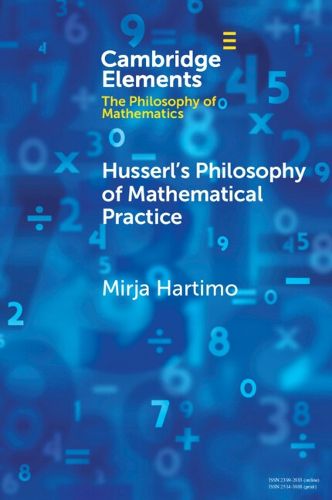Readings Newsletter
Become a Readings Member to make your shopping experience even easier.
Sign in or sign up for free!
You’re not far away from qualifying for FREE standard shipping within Australia
You’ve qualified for FREE standard shipping within Australia
The cart is loading…






Husserl's Philosophy of Mathematical Practice explores the applicability of the phenomenological method to philosophy of mathematical practice. The first section elaborates on Husserl's own understanding of the method of radical sense-investigation (Besinnung), with which he thought the mathematics of his time should be approached. The second section shows how Husserl himself practiced it, tracking both constructive and platonistic features in mathematical practice. Finally, the third section situates Husserlian phenomenology within the contemporary philosophy of mathematical practice, where the examined styles are more diverse. Husserl's phenomenology is presented as a method, not a fixed doctrine, applicable to study and unify philosophy of mathematical practice and the metaphysics implied in it. In so doing, this Element develops Husserl's philosophy of mathematical practice as a species of Kantian critical philosophy and asks after the conditions of possibility of social and self-critical mathematical practices.
$9.00 standard shipping within Australia
FREE standard shipping within Australia for orders over $100.00
Express & International shipping calculated at checkout
Husserl's Philosophy of Mathematical Practice explores the applicability of the phenomenological method to philosophy of mathematical practice. The first section elaborates on Husserl's own understanding of the method of radical sense-investigation (Besinnung), with which he thought the mathematics of his time should be approached. The second section shows how Husserl himself practiced it, tracking both constructive and platonistic features in mathematical practice. Finally, the third section situates Husserlian phenomenology within the contemporary philosophy of mathematical practice, where the examined styles are more diverse. Husserl's phenomenology is presented as a method, not a fixed doctrine, applicable to study and unify philosophy of mathematical practice and the metaphysics implied in it. In so doing, this Element develops Husserl's philosophy of mathematical practice as a species of Kantian critical philosophy and asks after the conditions of possibility of social and self-critical mathematical practices.